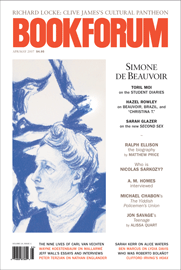
Bart Giamatti’s first book, an adaptation of his dissertation titled The Earthly Paradise and the Renaissance Epic (1966), examined the garden in literature as a symbol of respite and beauty. After his tumultuous and ultimately disappointing reign as president of Yale from 1978 to 1986, Giamatti must have felt that he’d found his own Eden when he ascended to baseball’s commissionership, with an opportunity to lead America’s most pastoral and literary sport. Instead, what he got was a faceful of Pete Rose.
Giamatti’s baseball career was in a sense a microcosm of his Yale years. A spellbinding teacher and recognized Spenser scholar, Giamatti lusted after the school’s presidency, only to grow frustrated with the job and finally leave it to become president of the National League. In that post, he eventually found his niche and even helped to prevent a threatened umpires’ walkout. Once he stepped into the commissionership, though, the Rose gambling imbroglio left no one involved unsullied.
Even Robert P. Moncreiff, who certainly admires Giamatti, has a hard time defining his Yale presidency as a success. What is clear, however, is that he was an extraordinarily talented teacher. After receiving his doctorate from Yale in 1964, Giamatti started his career at Princeton, and when Mother Yale came calling, Princeton offered him an associate professorship (with the promise of a full professorship to come) at the tender age of twenty-seven. His relations with his students often extended well beyond the classroom. He always called them Miss or Mister as a sign of “an equivalent amount of respect between teacher and student.” When one student suggested that respect could be maintained if they simply called him Bart, Giamatti replied with a smile, “That’s not my style––Mr. Cantor.”
After Kingman Brewster resigned as Yale’s president in 1977, Giamatti—then director of the school’s Division of the Humanities—said publicly, “The only thing I ever wanted to be president of was the American League.” (The remark would fatefully reach the ears of Bud Selig, then owner of the Milwaukee Brewers.) In private, he wanted the job so badly that when he heard it had been offered to a Harvard dean, Giamatti “nearly dismantled his office in frustration,” according to Moncreiff. But the Harvard man turned Yale down, and Giamatti then dazzled the search committee enough that they made him, at forty, Yale’s youngest president in centuries. Giamatti’s charisma in the classroom didn’t immediately transfer to his dealings with his colleagues. He quickly dismissed Robert Brustein, the famed dean of Yale’s drama school, and his first choice as provost, Abraham S. Goldstein, resigned after less than a year when the Yale Daily News reported that the university had spent sixty-seven thousand dollars renovating his house. On the plus side, Giamatti largely resolved Yale’s ever-expanding budget woes. But his presidency went sour again in the bitter strike of Yale’s clerical and technical staff in the 1984–85 school year. Even Moncreiff admits that Giamatti’s handling of the strike was poor, and the personal attacks by the union and other protesters (“Hey, Giamatti, get off the potty”) made him greatly uncomfortable.
And so, less than a decade after accepting his dream job, Giamatti announced his resignation, hoping for a lucrative position in the private sector. When big business didn’t respond, Selig came calling, offering him the National League job; three years later, in 1989, Giamatti became commissioner. Although Selig was obviously flattered that a top-flight academic wanted to work in baseball, others were less enthusiastic. When broadcaster Marv Albert kiddingly asked Cardinals manager Whitey Herzog if he were interested in the opening at Yale left by Giamatti, Herzog, a brush-cut mem?ber of baseball’s old guard, replied, “I don’t think that’s funny, Marv,” and thereafter refused to speak at all to Albert.
Awaiting Giamatti was the Pete Rose matter. An investigator for outgoing commissioner Peter Ueberroth had uncovered evidence that Rose, then manager of the Cincinnati Reds, had bet on many games, which was verboten under baseball rules dating to the fixed 1919 World Series. Giamatti and Rose ultimately reached an agreement whereby Rose was banished from baseball without a specific finding that he had bet on any games. However, Giamatti immediately violated the spirit of that pact by announcing that he believed Rose had indeed wagered on baseball. Rose was understandably livid; Moncreiff does not bother with this aspect of the story. Eight days later, Giamatti complained of chest pains on his way to his summer home on Martha’s Vineyard. An hour later, he was dead, the victim of a massive heart attack at age fifty-one. As always, Moncreiff underdramatizes this scene. This is nearly all he says about it.
Despite his outsize personality, Giamatti was a private man, loathe to entertain at his home despite his penchant for performing. (One of his sons is the actor Paul Giamatti.) Moncreiff, a former Wall Street lawyer and a Yale alumnus, seems uninterested in anecdotes or episodes that might bring Giamatti to life (you’ve just read most of the ones that appear in the book). At the same time, like many Ivy Leaguers, he assumes that anything that happens within the hallowed halls is exceptional, breathlessly telling us of Adlai Stevenson’s visit to Yale and young Bart’s membership in the Freshman Prom Committee.
Giamatti remains an odd choice for baseball commissioner: He had no marketing or business background, and his Yale presidency has been described by one of the school’s leading historians as “disastrous.” If he had simply continued on as a professor like his father, who taught at Mount Holyoke for thirty-three years, he might have become a Yale legend without the disappointments. But then people wouldn’t be writing books about him, either.
Tom Nawrocki, a freelance writer in Colorado, is a frequent contributor to Bookforum.
